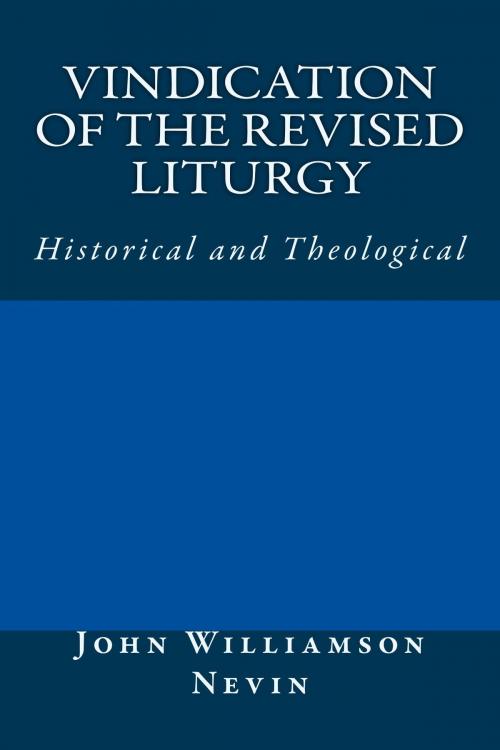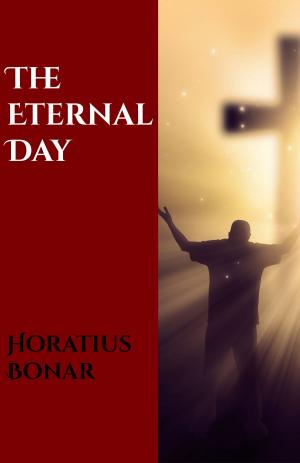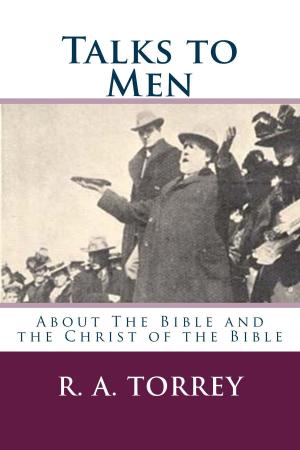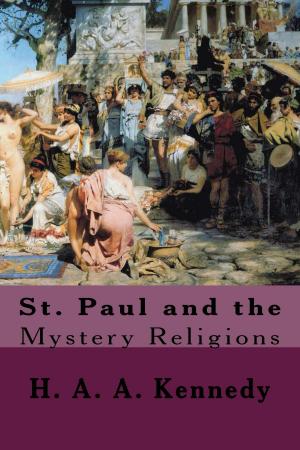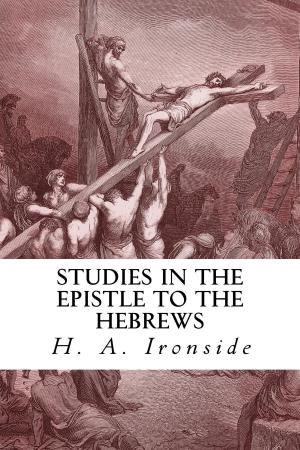Vindication of the Revised Liturgy
Historical and Theological
Nonfiction, Religion & Spirituality, Christianity, Denominations, Lutheran, Education, Theology| Author: | John Williamson Nevin | ISBN: | 1230001342482 |
| Publisher: | CrossReach Publications | Publication: | September 11, 2016 |
| Imprint: | Language: | English |
| Author: | John Williamson Nevin |
| ISBN: | 1230001342482 |
| Publisher: | CrossReach Publications |
| Publication: | September 11, 2016 |
| Imprint: | |
| Language: | English |
WORSHIP, in the use of prescribed forms, is not a new thing in the Reformed Church. Liturgies, of some sort, have had place within it from the beginning. They belonged to its church life in Europe, and they came over with the same church life to this country. At the same time, they were held to be a fair subject all along for change and improvement. No Liturgy was considered to be of perpetual force, even for the particular country or province in which it was used; much less for other countries. The liberty of primitive times here was practically asserted, as the proper liberty of the Protestant Church. The old Swiss Liturgies in this way changed. The old Liturgy of the Palatinate became antiquated, even in the Palatinate itself. There was a movement all along, in other words, towards the realization of something in worship, which it was felt had not been fully reached in existing forms. The grossly unliturgical tendencies of later times (Rationalistic in Germany, Methodistic in this country), belonged themselves to this movement. But they had no power to bring it to rest. They only served to urge it onward in its course, by deepening the sense of a want which they had no power to satisfy, and by causing it to be felt, that the true satisfaction for this want must be sought in some other way. Hence, among the “pious desires” of the Reformed Church in America, we find at work all along, very sensibly felt, the wish for a satisfactory Liturgy. The old Palatinate service was not satisfactory; and none of the services brought over from Europe, during the last century, were satisfactory. At the same time, the deeper consciousness of the Church refused to settle into contentment with the modern innovation of totally free prayer. Such worship had, indeed, forced itself into use on all sides; but the true genius of the Church, at bottom, resented it as something foreign and strange; and its voice was still heard, though in more or less smothered accents, calling out for a Liturgy that might be worthy of the name.
WORSHIP, in the use of prescribed forms, is not a new thing in the Reformed Church. Liturgies, of some sort, have had place within it from the beginning. They belonged to its church life in Europe, and they came over with the same church life to this country. At the same time, they were held to be a fair subject all along for change and improvement. No Liturgy was considered to be of perpetual force, even for the particular country or province in which it was used; much less for other countries. The liberty of primitive times here was practically asserted, as the proper liberty of the Protestant Church. The old Swiss Liturgies in this way changed. The old Liturgy of the Palatinate became antiquated, even in the Palatinate itself. There was a movement all along, in other words, towards the realization of something in worship, which it was felt had not been fully reached in existing forms. The grossly unliturgical tendencies of later times (Rationalistic in Germany, Methodistic in this country), belonged themselves to this movement. But they had no power to bring it to rest. They only served to urge it onward in its course, by deepening the sense of a want which they had no power to satisfy, and by causing it to be felt, that the true satisfaction for this want must be sought in some other way. Hence, among the “pious desires” of the Reformed Church in America, we find at work all along, very sensibly felt, the wish for a satisfactory Liturgy. The old Palatinate service was not satisfactory; and none of the services brought over from Europe, during the last century, were satisfactory. At the same time, the deeper consciousness of the Church refused to settle into contentment with the modern innovation of totally free prayer. Such worship had, indeed, forced itself into use on all sides; but the true genius of the Church, at bottom, resented it as something foreign and strange; and its voice was still heard, though in more or less smothered accents, calling out for a Liturgy that might be worthy of the name.
